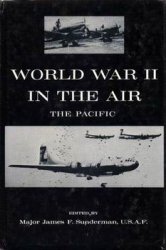
250 300 350 400 450 500 550 600 650
Analysis of how the Roman Empire functioned Propaganda, ideology, and the language of power in words and images
Military organization and communications Taxation
496-502 The impact of the empire at Edessa How the empire was ruled Late Roman administration Citizenship and Roman law The changing cities of the empire The social hierarchy
The impact of Christianity on imperial society
The Anatomy of the Empire
In the time of Constantine the late Roman Empire was the most highly developed imperial system of the ancient world. The capacity of the emperors and their administrations to command the obedience of their subjects depended on
A History of the Later Roman Empire, AD 284-641, Second Edition. Stephen Mitchell. © 2015 John Wiley & Sons, Inc. Published 2015 by John Wiley & Sons, Inc.
Complex and interlocking systems of governance. The most important of these was the creation of a symbolic system of authority, which presented imperial power as an inevitable part of world order. This was embodied in an ideology of rulership (Herrschaftsideologie). The idea of empire, based on the specific virtues and capacities which rulers possessed, was presented to the people in ritualistic and symbolic forms of action, through ceremonies, and through artistic media such as architecture and sculpture. Imperial victory was a key feature of this ruling ideology, as was the notion that emperors ruled as regents of God under divine protection. Emperors presented themselves as guarantors of the cosmic order and custodians of every aspect of their subjects’ well-being.1
Armies and military force preserved this order, and provided the means by which rulers could protect the interests of the empire and its inhabitants. Security, however, necessarily came at a price. Soldiers’ pay and the state’s other military needs required systems of taxation. Taxation, the bureaucratic equivalent of old-fashioned tribute, was one of the features that distinguished the Roman Empire from the barbarian kingdoms of the West. Empires claimed and asserted the right to levy revenue from their subjects, and the tentacles of the Roman tax system stretched across all communities.2
The empire also provided a source of authority capable of resolving confiicts without resorting to violence and warfare. Emperors and their representatives acted as judges, and this entailed the existence of a system of justice, enabling subjects to bring complaints and disputes to the imperial authorities, who would be responsible for legal decisions. Such decisions might be made simply on the basis of perceived fairness, but written laws were a means by which mere transient authority was made permanent. The empire was held together by Roman law and the administration of justice.3
Empires depended not only on the organizational capacity of the rulers to deploy military power, to raise taxes, and to resolve disputes in accordance with the law, but also on the willing consensus of the majority of their subjects. The people of the empire recognized its authority. Rulers and ruled had a common conception of the political system as a whole, and a shared view of what the Roman Empire stood for. This entailed the subjects’ acceptance of the emperors’ right to rule, which had been established over generations of historical experience. Empires fostered a collective consciousness and memory about the past.4
All aspects of imperial rule presupposed complex and effective systems of communication. At one level means of communication were designed for moving persons and products throughout the empire, between the peripheries and the centers, between producers and consumers, from peaceful areas to trouble spots. The state placed a high priority on building and maintaining roads, and organizing an overland transport system. Harbors, shipping, and sea transport were also essential to the empire’s existence, especially to the eastern empire based on Constantinople (see pp. 325-32). However, the communication of information was even more important than the movement of men and materials. The coherence of the empire depended entirely on the reciprocal capacity of rulers and subjects to convey information and decisions to one another, both in spoken, but above all in written, form. For the empire to be governable verbal communication had to be systematically organized into recognized official channels, by which the demands and wishes of the subjects were transmitted to the authorities in provincial or imperial centers, and responses, again conforming to standard protocols, sent back and otherwise disseminated among the empire’s communities.5




 World History
World History









